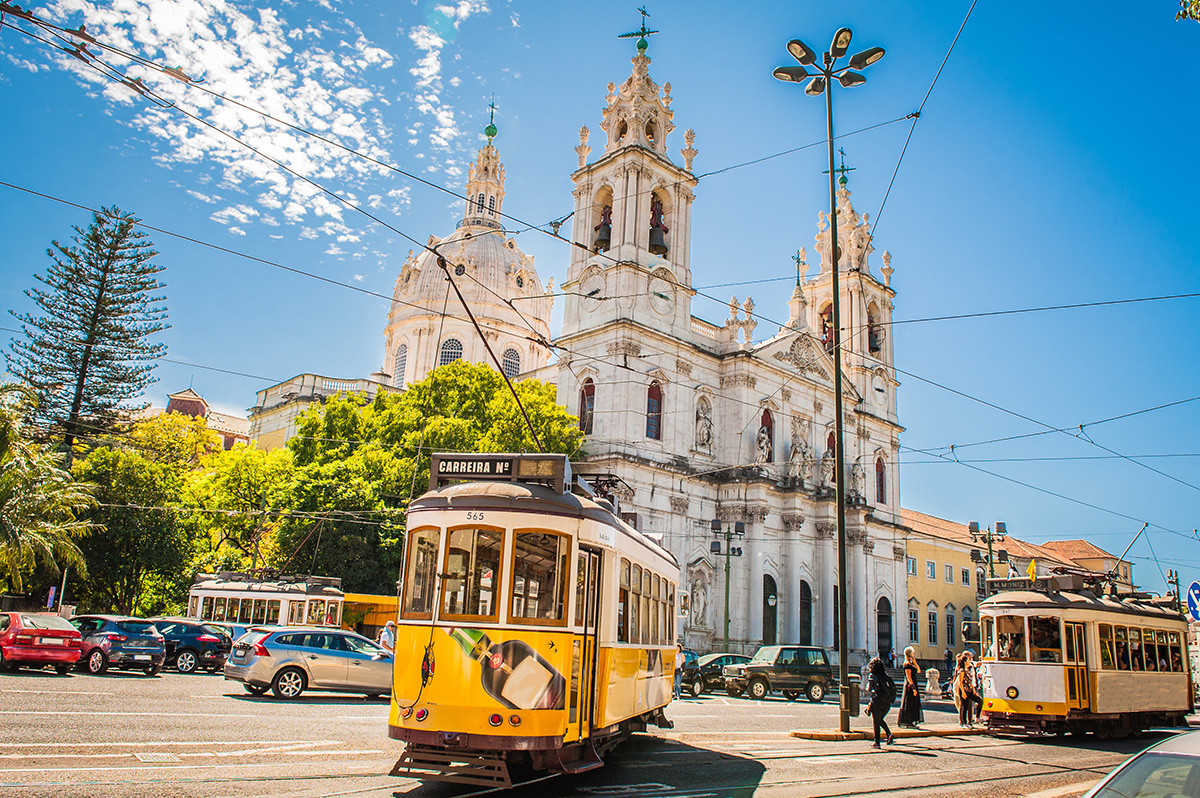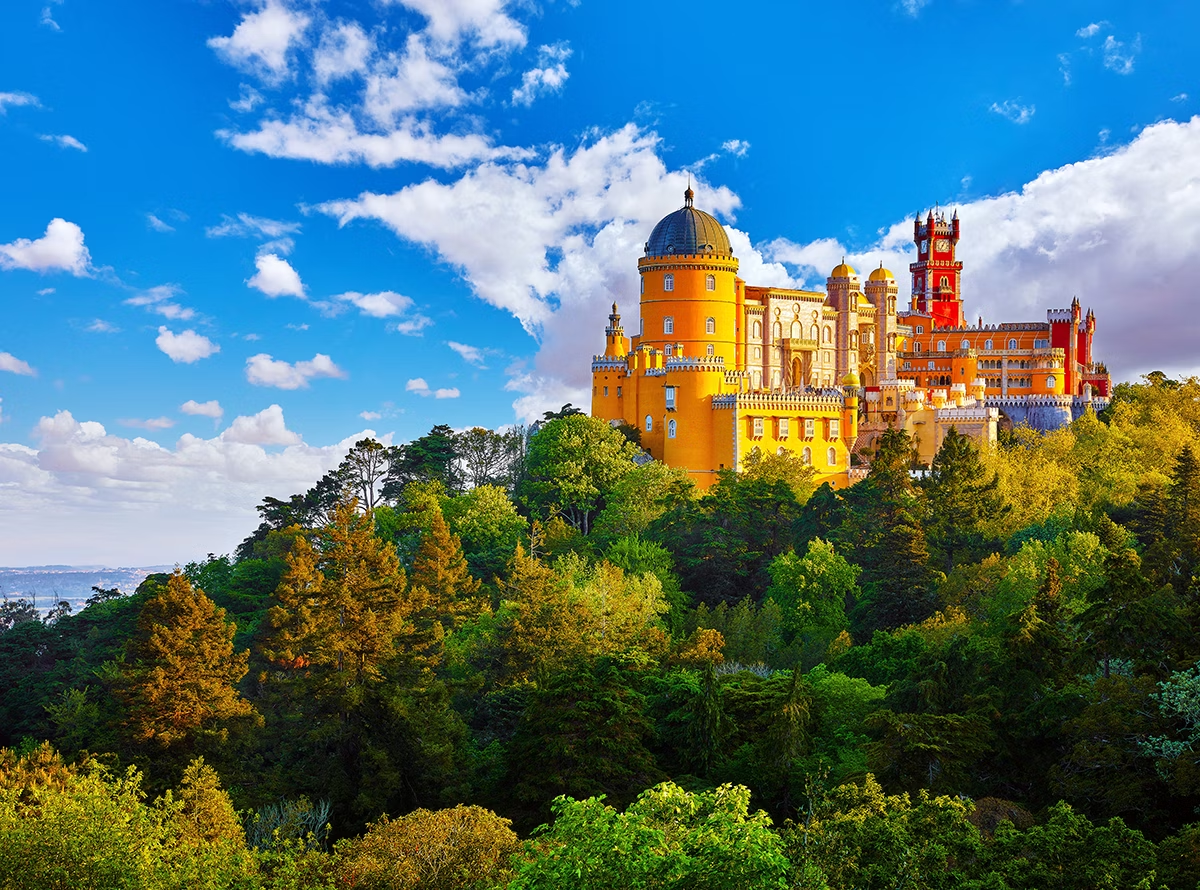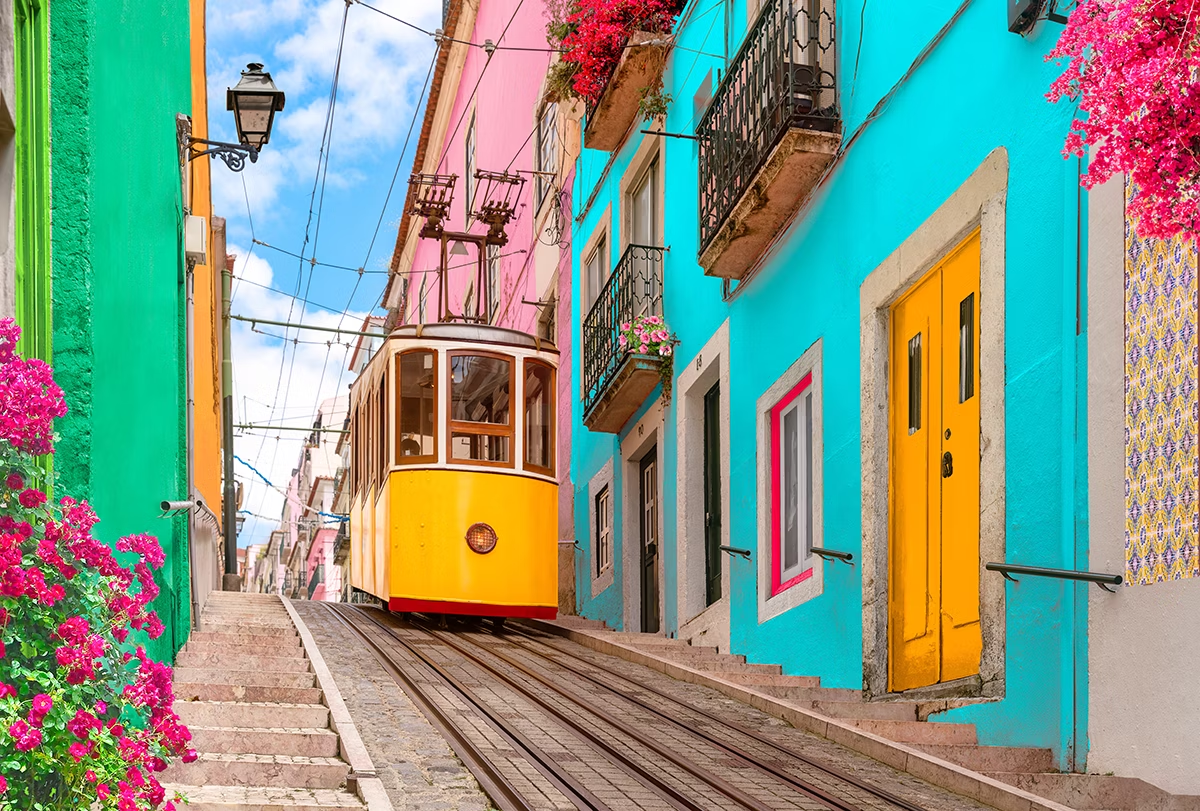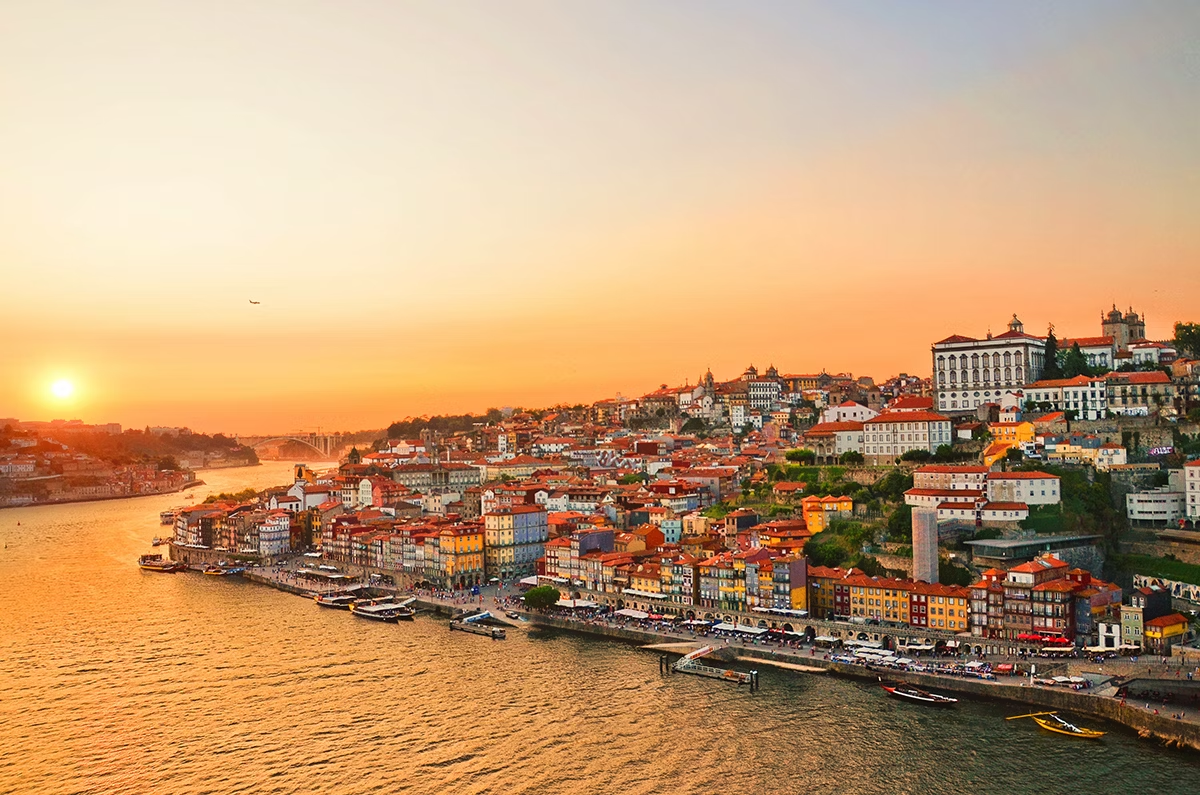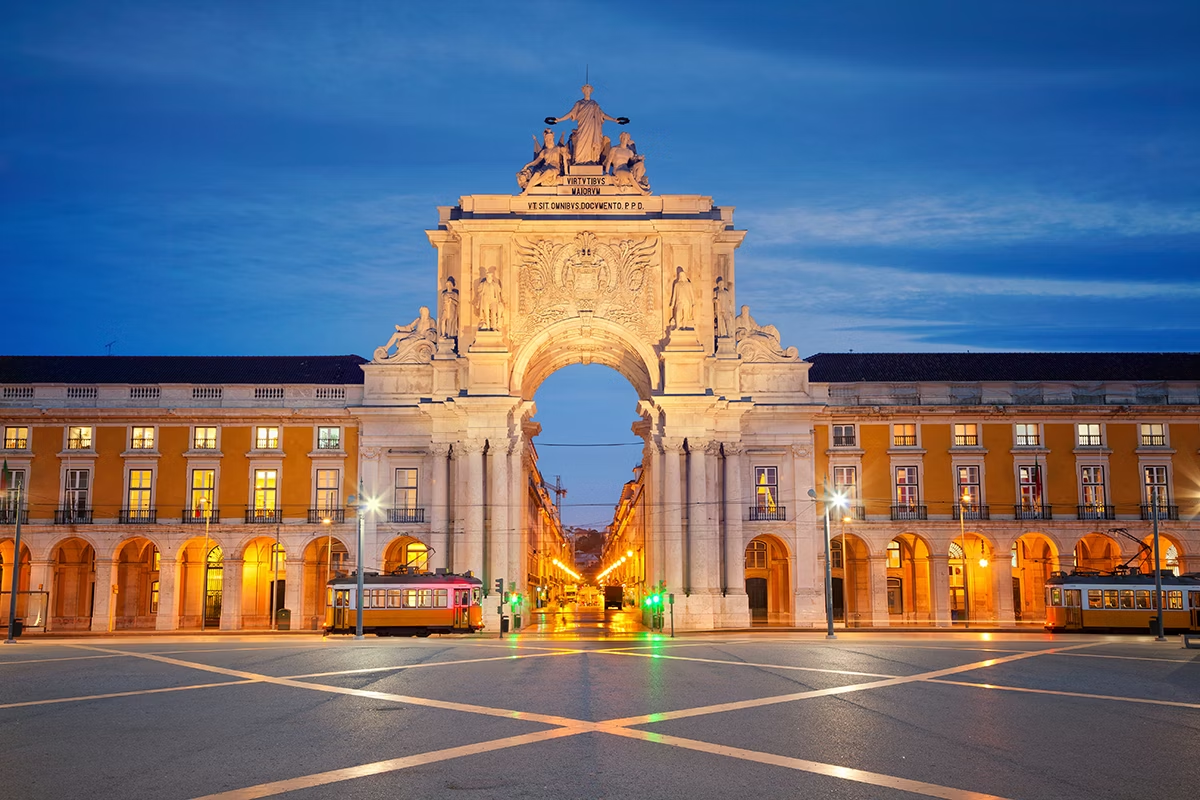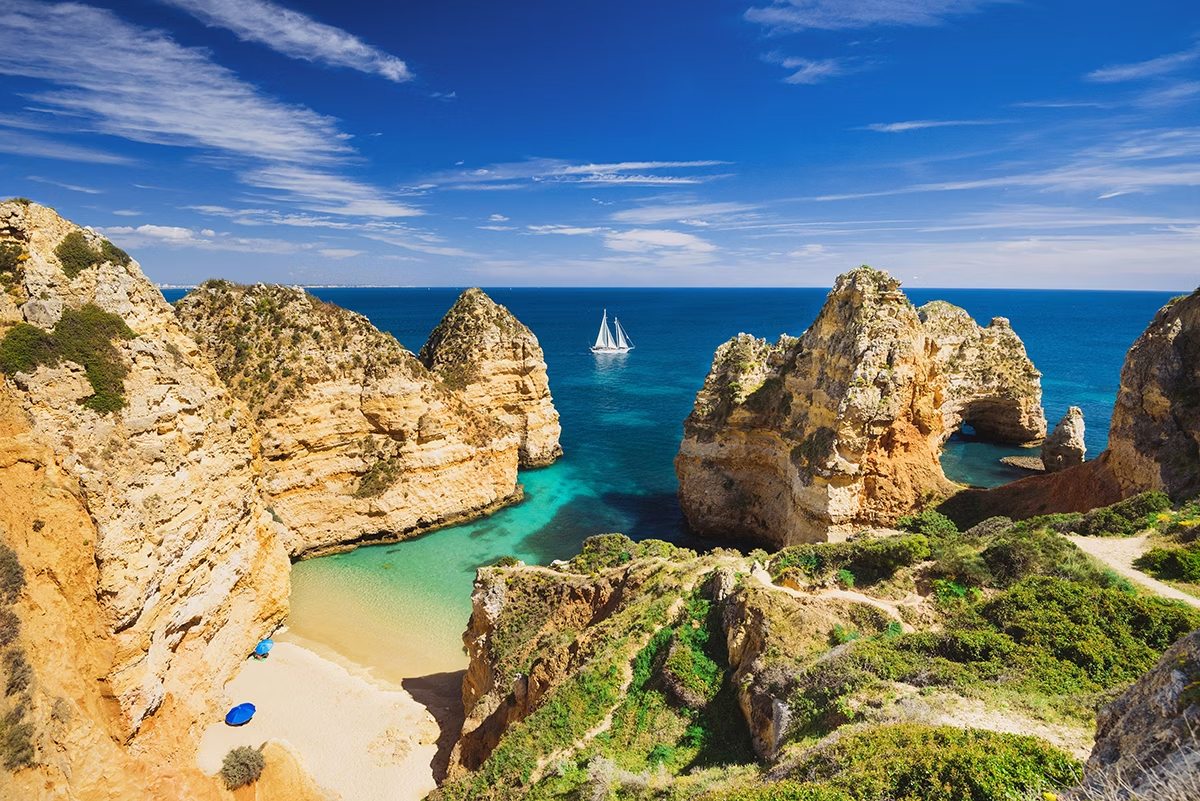How to plan a trip to Portugal
Planning a trip to Portugal? You're not alone. All sorts of travelers are making tracks to Spain’s hip neighbor – art lovers, foodies, history buffs, sun-worshippers, digital nomads, and even cruisers.
Where else can you get medieval castles, world-class wine, stunning coastlines, and some of Europe's most affordable luxury experiences ... besides Spain and parts of France, we mean?
With all this to experience and so many ways of experiencing it, you need proper planning to transform a good adventure into an unforgettable one.
Key takeaway: Portugal rewards travelers who plan for must-see attractions but allow room for spontaneous discoveries.
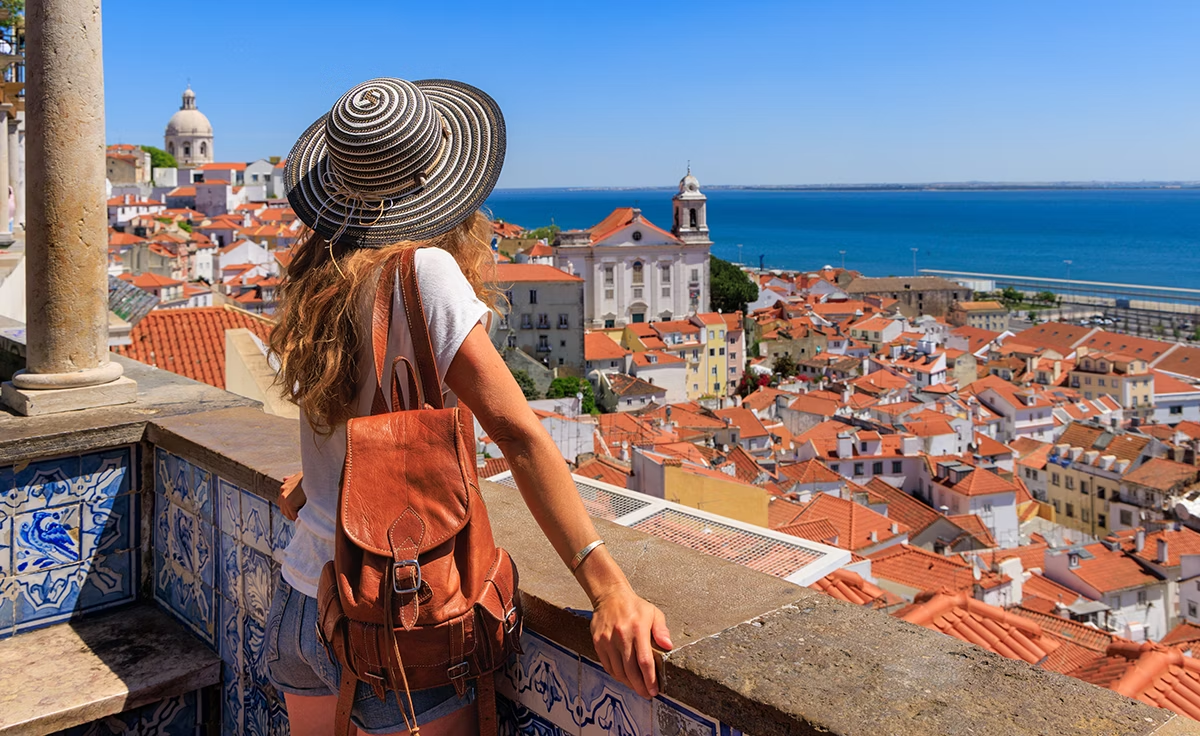
In this post
This comprehensive Portugal travel-planning guide covers:
- Best times to visit based on weather, crowds, and costs
- Essential destinations, from Lisbon to hidden villages
- Budget planning with realistic cost breakdowns
- Transportation options, including trains, planes, buses, and rental cars
- Lodging strategies for different travel styles
- Local customs
- Travel-insurance recommendations for peace of mind
Timing is everything: When to visit Portugal
Step 1: Choose your season strategically
Portugal is a wonderful place to visit any time of year, which is one reason it’s so attractive to digital nomads. But just like anywhere, each season comes with pros and cons.
Peak season (June-August)
- Pros: Perfect beach weather, longest days, vibrant festivals
- Cons: Highest prices, crowded attractions, hot cities, parched countrysides, sweltering inland temperatures (high 80s and 90s, with humidity)
- Best for: Beach lovers, festival enthusiasts, families with school-age children
Shoulder Season (April-May, September-October)
- Pros: Mild weather, fewer crowds, moderate prices, more attractive countryside, perfect for walking
- Cons: Occasional rain, some closed beachside restaurants and attractions
- Best for: Travelers seeking the ideal balance
Low season (November-March)
- Pros: Lowest prices, smallest crowds, authentic local experiences, mild winter temps
- Cons: Shorter days, potential rain, reduced tourist services
- Best for: Budget travelers, culture seekers, wine enthusiasts
Step 2: Consider weather by region
Portugal may not be a huge country, but its regions are diverse.
The Azores and Madeira are island groups in the North Atlantic, almost closer to Morocco than Portugal. Porto is the key city in the country’s north, near its northern border with Spain. The Algarve is a scenic region in Portugal’s far south that appeals to golfers and sunbathers.
If you’re looking to travel around the country, here’s what to expect weatherwise and when to expect it:
Lisbon / Central: best weather April-October; rain/windy season December-February
Porto / North: best weather May-September; rain/windy season November-March
Algarve: best weather March-November; rain/windy season January-February
Azores: best weather May-October; rain/windy season November-April
Madeira: best weather is year-round; rain/windy season December-February
Essential destinations: Where to go in Portugal
Lisbon
Why visit: With its hillside neighborhoods, trams, museums, ocean views, and incredible food and music scenes Lisbon might be the perfect European capital. It provides a picture-window view of what makes the country special and why the Portuguese take such pride in their homeland.
Here are some Lisbon must-dos:
- Listen to fado music: Fado is a cousin of flamenco. Both involve strummed guitars and mournful singing, though flamenco is more upbeat and fado more melancholy. You can also hear traces of Brazilian music in fado. It’s best found in the Alfama district.
- Check out the country’s maritime history: Magellan and Vasco de Gama, among others, were Portuguese, and you can explore their histories at the Maritime Museum, the Belém Tower and Jerónimos Monastery.
- Eat: Lisbon street food includes hearty sandwiches like bifanas and pregos, codfish cakes (Bolinhos de Bacalhau) and custard tarts (Pastéis de Nata).
- Visit a museum: In addition to the maritime museum, top museums in Lisbon include:
-
- The Calouste Gulbenkian for ancient art
-
- The National Tile Museum, for Portugal’s signature decorative device
-
- The Museum of Art, Architecture and Technology, which blends these diverse fields into a cohesive whole
Time needed: Three to four days
Porto
Why visit: Porto is an old city that’s the home of port wine, intricate tile work and a UNESCO World Heritage historic center. Generally visitors to Portugal make Porto their second stop after Lisbon.
Things you must do in Porto:
- Visit the city center: If you’ve traveled in Europe you’re no stranger to old buildings and cobblestones. Porto has both, but in unique styles and combinations.
- Stroll through the Crystal Palace gardens: Porto can get oppressively hot and humid. The gardens are a beautiful place to cool down amidst fountains and greenery.
- Explore the port-wine cellars: Even if you find port wine sweet and heavy you won’t regret visiting Graham’s or Cockburn’s. Make reservations in advance.
- Go to church: Porto has multiple spectacular old churches, but perhaps the most stunning is the gilt-covered Igreja de São Francisco. “Breathtaking” doesn’t begin to describe it.
- Explore Livraria Lello. Perhaps the most famous bookstore in Portugal, it’s a must for Harry Potter fans and hardcore booklovers, despite big crowds and some mixed reviews.
- Visit one of the world’s most beautiful McDonald’s: For some people, this ornate take on the iconic restaurant is like going to church, but with Big Macs.
Time needed: Two to three days
The Algarve
Why visit: Portugal's southern coast is home to some of Europe's most beautiful beaches, dramatic cliffs, spectacular golf courses, and charming fishing villages. And because it’s sunny almost 300 days a year, you’re generally assured of good weather.
Things you must do in the Algarve:
- Indulge in scenery: Start with a trip to the stunning Ponta da Piedade cliffs in Lagos.
- Visit a country town or fishing village: Good candidates for the first category include Alte, Monchique and Salir, while options for the second are Arrifana, Ferragudo and Carvoeiro.
- Play a round: Golfers can take a swing at top European courses including Monte Rei, Palmares and Quinto do Lago.
- Hit the beach: But of course! That’s why many tourists come to the Algarve in the first place. As you drive along you'll notice there are many beaches to choose from, but you can’t go wrong with any of these:
-
- Amado e Odeceixe
-
- Amoreira
-
- Barril
-
- Bordeira
-
- Cacela Velha
-
- Camilo
-
- Caneiros
-
- Carvalho
-
- Castelejo
Time needed: Four to seven days, depending on beach time desired.
Hidden gems
There’s so much more to Portugal than these three destinations! Among the other destinations worth checking out are:
Óbidos: A walled town full of whitewashed houses and glorious churches like Santa Maria Main Church, the Misericórdia Church and the Church of São Pedro. It’s perfect for a day trip.
Aveiro: Portugal’s Venice, with colorful boats, gilded churches, unique sweets and Art Nouveau architecture.
Tomar: Just named Europe’s top hidden gem by HomeToGo and Condé Nast Traveler, this beautiful small town offers a winning combination of tradition and accessibility.
Monsaraz: A very small, old, well-preserved town with stunning views that turns into a living-history museum each summer.
Douro Valley: The north star for wine aficionados, the river valley is a UNESCO World Heritage region with terraced vineyards and glorious views. If this is really your thing, consider a river cruise through the valley for maximum impact and a truly different Portugal experience.
Budget planning: What Portugal really costs
Portugal isn't the bargain it once was, but it can still be a relatively affordable European destination. Here’s what you should budget, depending on the type of traveler you are or want to be:
Budget traveler ($40-$60/person/day)
- Accommodations: $15-$25 (hostels, budget hotels)
- Food: $15-$20 (local restaurants, markets)
- Transportation: $5-$10 (public transport)
- Activities: $5-$10 (free attractions, walking tours)
Mid-range traveler ($80-$120/person/day)
- Accommodations: $40-$70 (boutique hotels, Airbnbs)
- Food: $25-$35 (mix of local and tourist restaurants)
- Transportation: $10-$15 (taxis, rental car)
- Activities: $15-$25 (paid attractions, guided tours)
Luxury traveler ($200+/person/day)
- Accommodations: $150+ (luxury hotels, quintas)
- Food: $50+ (fine dining, wine tastings)
- Transportation: $30+ (private transfers, premium car rental)
- Activities: $50+ (private tours, exclusive experiences)
Money-saving tips
You can maximize your travel experience without spending an arm and a leg by:
- Booking accommodations outside city centers for better rates, and take public transport into the city
- Renting a bicycle
- Eating lunch at local tascas (taverns) instead of touristy restaurants
- Taking advantage of free museum days and walking tours
- Shopping at local markets for snacks and light meals
Getting around: Your transportation guide to Portugal
Like most European countries, Portugal is a snap to get around, whether you’re traveling between cities or getting around them.
Mass transit is clean, fast, frequent and generally logical for folks armed with nothing more than Google Translate.
Buses are another easy way to see the countryside. The Rede Expressos website is your first stop for bus travel in Portugal.
Trains range from fast and punctual to very fast. The Alfa Pendular network connects most major cities and travels at speeds up to 135 mph.
Domestic flights in Portugal are prompt and useful if you’re trying to get to the Azores or the Algarve. TAP is a popular carrier on the mainland; Azores Airlines can get you to the islands.
Finally, driving in Portugal is relatively easy. The main highways are easy to navigate, though side roads can get narrow and livestock-infested.
Driving in Portugal: What else to know
- An international driving permit is required for non-EU visitors
- Toll roads are common, but avoidable with planning
- Parking in city centers can be challenging and expensive; a better option is to park on the outskirts and take mass transit to the city center
- Speed limits: 50 km/h in cities, 90 km/h on roads, 120 km/h on highways
Transportation options comparison
Rental car: best for travel flexibility, rural areas; Pros: freedom, accessing hidden gems; Cons: parking costs and navigating city-driving stress
Train: best for city-to-city travel; Pros: comfortable, scenic; Cons: few rural routes and stops
Bus: best for budget travel; Pros: affordable; extensive network; Cons: slower, less comfortable
Domestic flights: best for islands, long distances; Pros: time-saving; Cons: environmental impact, cost
Accommodation strategies: Where to stay in Portugal
Portugal has many distinct places for you to stay depending on your budget. Among your choices are:
Pousadas (historic buildings)
Ever wanted to stay in a storybook setting? It’s possible in Portugal. Converted monasteries, castles and palaces are all rentable, for one night or several.
- Best for: Unique experiences, history buffs
- Book when: You want authentic Portuguese architecture with modern amenities
- Book through: Airbnb, Vrbo, your travel advisor, or Pousadas of Portugal
Quintas (wine estates)
Wine lovers can have their dream come true by staying at a vineyard … in Portugal! Private tastings and gourmet meals are often part of the stay, along with glorious vineyard views.
- Best for: Wine lovers, fans of rural experiences
- Book when: Visiting Douro Valley or Alentejo regions
- Book through: Expedia, Hotels.com, your travel advisor, or Pacheca Group
City-center hotels
Want to stay in the center of the action? Lisbon and Porto have many, many options. You’ll be able to walk to many prime attractions – but you’ll often pay for the convenience.
- Best for: First-time visitors, short stays
- Book when: Maximizing sightseeing time is priority
- Book through: Most online travel sellers or your travel advisor
Coastal resorts
The pool, the beach, the sun – this is many travelers’ idea of paradise.
- Best for: Beach vacations, families
- Book when: Relaxation is the primary goal
- Book through: Online travel sellers or your travel advisor
Booking tips for better rates
- Book two to three months ahead at a minimum if you’re traveling during peak season
- Travel during the shoulder season for 30%-50% savings
- Look for properties offering free breakfast
- Read reviews carefully; if it seems too good to be true it probably is
- Work with a travel advisor who knows the country
Fitting in: How to act in Portugal
Mealtimes
- Lunch: Noon-2 p.m.
- Dinner: 7:30 p.m.-10 p.m.
- Coffee: Always consumed on the premises, never on-the-go
Social etiquette
- Greet friends with handshakes or “air kisses”
- Dress modestly when visiting religious sites
- Tip 10% in restaurants and round up for services
Travel Insurance: How to protect your Portuguese adventure
Why travel insurance matters for Portugal:
- Medical emergencies can be expensive for non-EU residents
- Trip-cancellation protection is prudent for family emergencies and catastrophic weather events
- Coverage for rental-car damage and theft can protect your car when you travel
- Missed-connection coverage makes sense if you’re headed to the Azores or Madeira
Recommended coverage
Emergency medical coverage
- Look for plans that have a maximum benefit of $50,000 or more, such as ExactCare Extra®, WaveCare® (for cruises), AdrenalineCare® (for adventure travel), or LuxuryCare®
- Also look for $500,000 or more in coverage for emergency medical evacuation, available in the aforementioned plans
- Verify coverage for adventure activities like surfing and hiking by reading your policy
Trip Protection
- Choose trip-cancellation and -interruption coverage with the broadest array of covered reasons for cancellation/interruption, found by reading and comparing policies
- Make sure your baggage is covered for delay, theft, damage, and loss (also found by reading your policy)
Rental-Car Coverage
- Get travel protection with an available collision damage waiver you can add on if wanted
- Check if your policy covers theft of a rental car
- If your travel plan doesn’t include third-party liability coverage, see if your standard auto insurance does
Other travel tips
Portugal has been named one of the safest countries in the world by many experts, including by American travelers in our own Safest Countries ratings.
Still, it’s important to consider safety when planning a trip to Portugal.
Safety tips for Portugal
These tips can enhance your safety in Portugal and make for a better vacation.
- Read the State Department’s country-information sheet for Portugal
- Carry multiple copies of your passport and keep one on your person, possibly a second somewhere else on your person, and one back at your place of lodging
- Don’t flash jewelry, cash or valuables
- Use a lanyard for your phone
- Avoid ATMs in poorly lit areas and cover the keyboard with your hand when entering your PIN
- When at the beach, don’t leave items unattended
Final planning checklist
30 days-six months before departure
- Book accommodations
- Arrange travel insurance if you haven’t purchased already
- Check passport validity and renew if you have less than six months remaining
- Research local customs and learn a few basic Portuguese phrases
14 days before departure
- Confirm bookings
- Download offline maps and translation apps
- Notify banks of travel dates
- Pack appropriate clothing for season
Three days before departure
- Check weather forecast
- Confirm first-night accommodation
- Print important documents
- Pack essential medications
Your Portuguese adventure awaits
Portugal’s affordability, history, variety, and beauty make it perfect for any type of traveler. The key to a successful trip lies in balancing a firm itinerary with opportunities to explore and experience the culture.
With proper planning, a spirit of adventure and good travel insurance providing peace of mind, your Portuguese journey will create memories that last a lifetime.
Questions About Travel Insurance?
Check out our online guide, "What Is Travel Insurance All About?" We've provided in-depth answers to all your travel insurance questions, starting with the basics.
